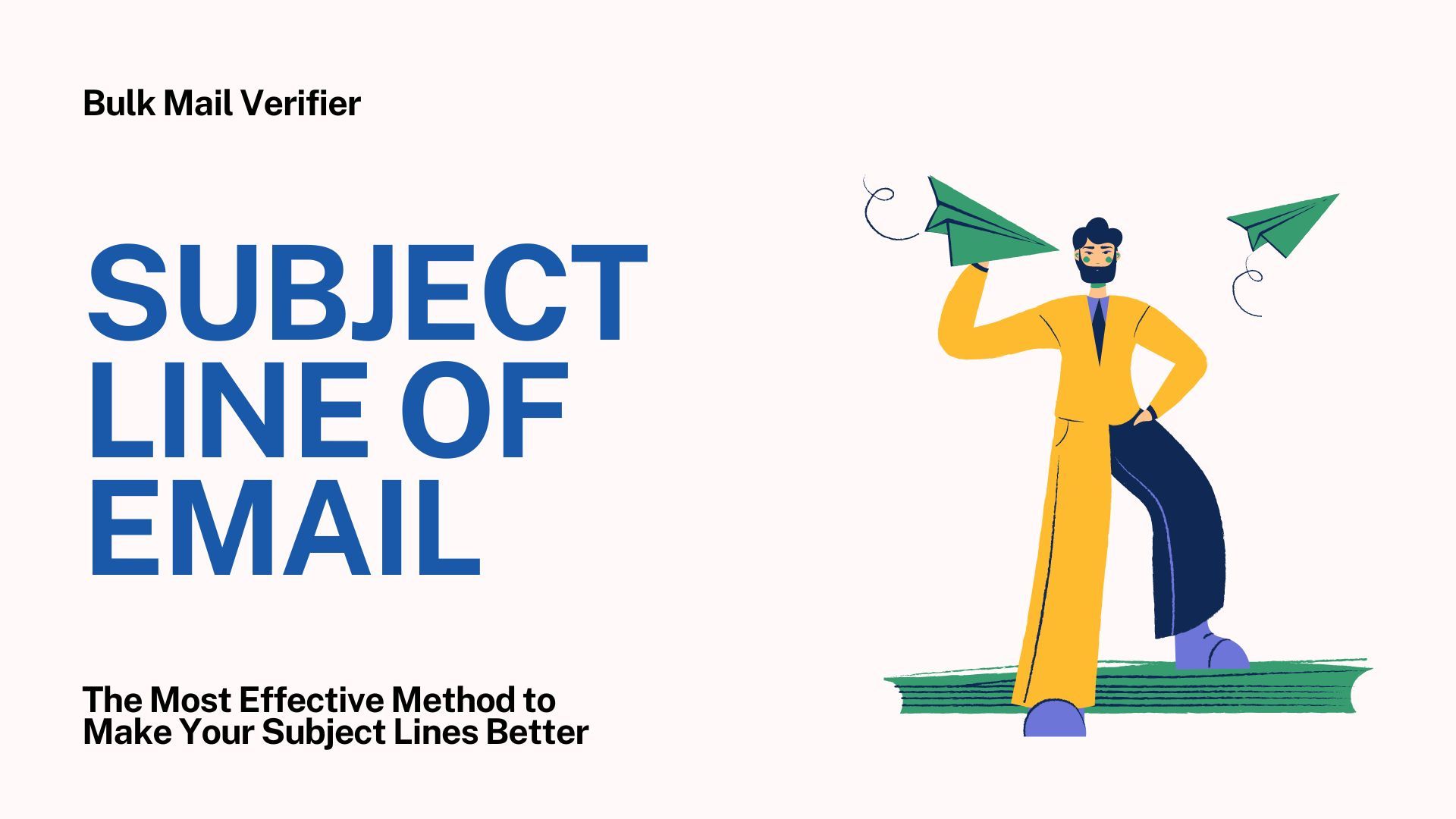Mastering Email Subject Lines for Better Engagement
 Published by Bulk Mail Verifier
Published by Bulk Mail Verifier
The Power of Email Subject Lines
The subject line of your email is arguably the most critical few words in the entire email. It serves as the first impression, your slogan, and the reason why recipients will or won't open your message. The purpose of the email subject line is to entice the reader to think, "Let me know more."
Why Subject Lines Matter
An email's subject line is akin to a company's slogan. Entrepreneurs often ask for advice on choosing between two subject lines: one descriptive and another more inspiring. The goal is to prompt the reader to think, "That sounds interesting, let me know more."
Your subject line isn't meant to convey everything, much like a headline isn't meant to save the reader from opening the email. Instead, it should compel the reader to click on the email rather than the Delete button.
Enhancing Your Subject Lines
Creating effective subject lines is both an art and a science. Here are some best practices to help you craft compelling email openers:
Test Your Subject Lines
Utilize A/B testing to compare different subject lines. This involves sending two versions of your email with only the subject line differing. Analyze which version receives more opens and consider additional factors like unsubscribe rates or site visits to gauge effectiveness.
Segment Your Audience
Different subscribers have different motivations. Tailor your subject lines to appeal to various audience segments, increasing your overall open rates.
Convey Urgency
With limited attention spans, especially on mobile devices, urgency is key. Use strong language or deadlines to prompt immediate action.
Keep it Short
Aim for brevity in your subject lines, especially on mobile where only 25-30 characters are visible. Edit ruthlessly to ensure clarity and impact.
Use a Recognizable Sender Address
Emails should come from a professional, recognizable address, avoiding overly formal or impersonal options like "no-reply@yourcompany.com."
The Importance of Subject Lines
Successfully sending important emails, whether individually or in bulk, hinges on engaging content. While the body of an email is crucial, the subject line is the first point of engagement. Most recipients spend only a brief moment assessing subject fields, making it vital that your subject line captures attention immediately.
Crafting a Strong Subject Line
Step 1: Identify the Email's Purpose
Determine why the email is being sent and use that as a foundation for brainstorming subject line ideas.
Step 2: Define the Call to Action
What will entice the recipient to click? Discounts, free offers, or valuable information can be compelling motivators.
Step 3: Draft Multiple Options
Create several subject lines with varying words and tones to choose from, preventing stagnation over a single idea.
Step 4: Seek Feedback
Get input from colleagues on preferred subject lines for a fresh perspective.
Step 5: Test and Refine
Conduct A/B tests to find the most effective subject line and apply it to future campaigns.
Conclusion
Writing a compelling subject line is crucial for successful email marketing. Remember, the subject line is your chance to connect with your audience. For enhanced email deliverability and validation, consider using BulkMailVerifier.com to ensure your emails reach the right inboxes. By refining your subject lines and using email validation services, you can significantly boost your engagement rates and marketing success.